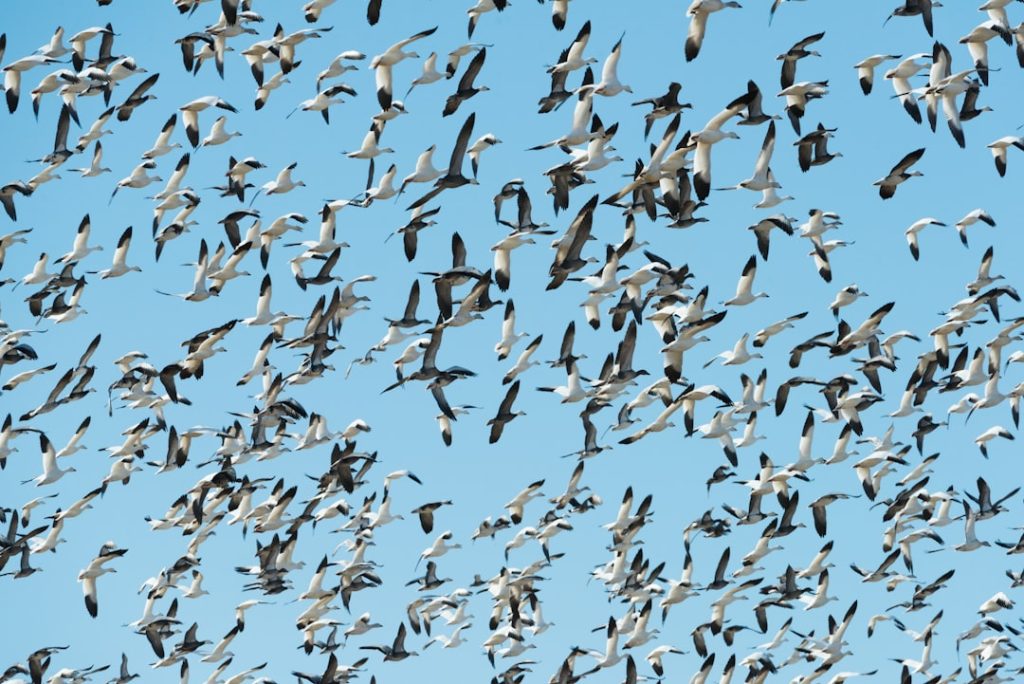Keeping ducks and chickens together is a viable option for poultry keepers. These two species can coexist successfully, offering diverse benefits such as varied egg production and natural pest control. To ensure a harmonious environment, it is essential to understand and accommodate the specific needs of both ducks and chickens.
While ducks and chickens have distinct requirements for housing, nutrition, and social interaction, they can share living spaces with proper planning and management. This includes providing appropriate housing and yard space, addressing their different dietary needs, managing health and potential diseases, understanding their social behaviors, and optimizing egg production. This article will provide a comprehensive overview of the key aspects involved in keeping ducks and chickens together.
Topics covered will include housing and space requirements, feeding and nutrition, health management, social dynamics, and egg production strategies. By addressing these factors, poultry keepers can create an environment where both ducks and chickens thrive together.
Table of Contents
- 1 Housing and Space Requirements for Ducks and Chickens
- 2 Feeding and Nutrition for Ducks and Chickens
- 3 Health and Disease Management for Ducks and Chickens
- 4 Social Dynamics and Behavior of Ducks and Chickens
- 5 Egg Production and Management for Ducks and Chickens
- 6 Conclusion and Tips for Successfully Keeping Ducks with Chickens
- 7 FAQs
- 7.1 Can ducks and chickens live together?
- 7.2 Do ducks and chickens get along?
- 7.3 What do ducks and chickens eat?
- 7.4 Do ducks and chickens need the same housing?
- 7.5 Are there any health concerns when keeping ducks and chickens together?
- 7.6 Can ducks and chickens free-range together?
- 7.7 Do ducks and chickens have different social behaviors?
Key Takeaways
- Ducks and chickens can be successfully kept together, but it’s important to understand their unique needs and behaviors.
- Ducks and chickens require different housing and space requirements, so it’s important to provide separate areas for each species.
- Ducks and chickens have different nutritional needs, so it’s important to provide a balanced diet for both species.
- Ducks and chickens are susceptible to different diseases, so it’s important to have a health management plan in place for both species.
- Ducks and chickens have different social dynamics and behaviors, so it’s important to monitor their interactions and provide appropriate management.
Housing and Space Requirements for Ducks and Chickens
Space Requirements
Ducks require more space than chickens due to their larger size and their need for water access. A good rule of thumb is to provide at least 4 square feet of indoor space per duck and 2 square feet per chicken. Additionally, ducks need access to water for swimming and bathing, so a small pond or kiddie pool should be provided within their living area.
Nesting and Outdoor Space
It’s important to have separate nesting areas for ducks and chickens, as they have different nesting habits. Ducks prefer to nest on the ground, while chickens prefer elevated nesting boxes. The outdoor space should be securely fenced to prevent escape and protect the birds from predators.
Coop Maintenance and Bedding
Providing ample space for both ducks and chickens will ensure that they can move around freely and engage in natural behaviors, leading to happier and healthier birds. In addition to space requirements, it’s important to consider the bedding and flooring in the coop. Ducks produce more moisture in their droppings compared to chickens, so the flooring should be covered with a thick layer of straw or shavings to absorb the moisture. Regular cleaning and maintenance of the coop are essential to prevent the buildup of ammonia and bacteria, which can lead to respiratory issues in both ducks and chickens.
Feeding and Nutrition for Ducks and Chickens

Feeding ducks and chickens together requires careful consideration of their dietary needs. While both species can consume a similar diet, there are some differences in their nutritional requirements that need to be addressed. Ducks are omnivores and require a higher protein content in their diet compared to chickens.
A commercial poultry feed with around 16-18% protein is suitable for both ducks and chickens. However, ducks also benefit from additional sources of protein such as mealworms, earthworms, or small fish. In addition to protein, ducks require more niacin in their diet compared to chickens.
Niacin is essential for ducklings’ growth and development, as a deficiency can lead to leg issues and neurological problems. It’s important to provide niacin supplements or offer niacin-rich foods such as green leafy vegetables or brewer’s yeast to ensure that ducks receive an adequate amount of this essential nutrient. When feeding ducks and chickens together, it’s important to monitor their intake to prevent competition for food.
Ducks have a tendency to overeat, which can lead to obesity and related health issues. Providing separate feeding stations for ducks and chickens can help regulate their food intake and prevent overconsumption. Additionally, ensuring access to clean water is crucial for both species, as ducks require water for drinking as well as for swimming and bathing.
By understanding the specific nutritional needs of ducks and chickens, you can provide a balanced diet that supports their overall health and well-being. Monitoring their food intake, providing supplemental nutrients when necessary, and ensuring access to clean water will contribute to the optimal growth and development of both species.
Health and Disease Management for Ducks and Chickens
Maintaining the health of ducks and chickens is essential for their overall well-being and productivity. Both species are susceptible to various diseases and health issues that require proactive management and prevention strategies. It’s important to observe the birds regularly for any signs of illness or distress, as early detection can lead to timely intervention and treatment.
One common health concern for ducks is botulism, which can occur in stagnant water or contaminated feed. Providing clean water sources and regularly cleaning feeding areas can help prevent the spread of this potentially fatal disease. Additionally, ducks are prone to respiratory issues if exposed to damp or poorly ventilated environments.
Regular cleaning of the coop, proper ventilation, and providing dry bedding are essential for maintaining respiratory health in ducks. Chickens are susceptible to diseases such as coccidiosis, infectious bronchitis, and avian influenza. Proper sanitation practices, regular deworming, and vaccination when necessary are important measures for preventing these diseases.
Additionally, maintaining a clean environment with dry bedding, proper ventilation, and access to fresh air can help reduce the risk of respiratory issues in chickens. It’s important to quarantine new birds before introducing them to an existing flock to prevent the spread of diseases. Monitoring the birds for any changes in behavior or appearance can help identify potential health issues early on.
Consulting with a veterinarian specializing in poultry health can provide valuable guidance on disease prevention and management strategies for both ducks and chickens. By implementing proactive health management practices, such as regular observation, sanitation, vaccination, and quarantine procedures, you can minimize the risk of disease outbreaks in your duck and chicken flock. Maintaining a clean environment with proper ventilation and access to clean water will contribute to the overall health and well-being of your birds.
Understanding the social dynamics and behavior of ducks and chickens is essential for creating a harmonious living environment for both species. Ducks are social animals that thrive in groups, while chickens have a hierarchical social structure within their flock. When introducing ducks to an existing chicken flock or vice versa, it’s important to monitor their interactions closely to ensure that they integrate peacefully.
Ducks are generally more docile than chickens and are less likely to engage in aggressive behavior. However, male ducks (drakes) can become territorial during mating season, which may lead to conflicts with chickens or other ducks. Providing ample space within the coop and yard can help reduce territorial disputes between birds.
Chickens establish a pecking order within their flock, with dominant individuals asserting their authority over subordinate members. When introducing new birds to an existing chicken flock, it’s important to monitor their interactions closely to prevent bullying or aggression. Providing multiple feeding stations and nesting areas can help reduce competition among chickens.
Both ducks and chickens engage in natural behaviors such as foraging, dust bathing, preening, and socializing. Providing enrichment activities such as hanging treats or providing access to natural vegetation can encourage these natural behaviors in both species. Additionally, ensuring that each bird has access to adequate food and water sources will help reduce competition and potential conflicts within the flock.
By understanding the social dynamics and behavior of ducks and chickens, you can create a peaceful living environment that promotes positive interactions among the birds. Providing ample space, monitoring their interactions closely, and offering enrichment activities will contribute to a harmonious coexistence between ducks and chickens.
Egg Production and Management for Ducks and Chickens

Egg Production Patterns
Chickens are prolific layers, producing eggs consistently throughout the year with proper management. Most chicken breeds lay eggs in nesting boxes within the coop, making egg collection relatively straightforward. Providing clean nesting areas with comfortable bedding material can encourage hens to lay eggs in designated locations.
Ducks have a seasonal egg-laying pattern, with peak production occurring in the spring through early summer months. Duck eggs are larger than chicken eggs and have a richer flavor profile, making them a popular choice for culinary use.
Nesting and Egg Collection
Ducks have a tendency to lay eggs in hidden or secluded areas within their living space, so providing multiple nesting areas with comfortable bedding material can encourage consistent egg production. Regular collection of eggs is important to prevent broodiness in hens or potential egg breakage in duck nests.
Diet and Calcium Supplementation
Both ducks and chickens require a balanced diet with adequate calcium levels to support eggshell formation. Providing oyster shell or crushed eggshells as a calcium supplement can help ensure strong eggshells for both species.
Optimizing Egg Production
By understanding the egg production characteristics of ducks and chickens, you can implement management practices that support optimal productivity while ensuring the well-being of your birds. Providing comfortable nesting areas, a balanced diet with adequate calcium levels, and regular egg collection will contribute to consistent egg production from both species.
Conclusion and Tips for Successfully Keeping Ducks with Chickens
Keeping ducks with chickens can be a rewarding experience that offers diverse benefits for poultry enthusiasts. By understanding the specific needs of each species in terms of housing, feeding, health management, social dynamics, behavior, and egg production, you can create a thriving environment for both ducks and chickens. Here are some additional tips for successfully keeping ducks with chickens: 1.
Provide ample space for both species within the coop and yard area.
2. Monitor their dietary intake to prevent overeating or competition for food.
3. Implement proactive health management practices such as regular observation, sanitation, vaccination when necessary.
4.
Monitor their interactions closely when introducing new birds to an existing flock.
5. Provide enrichment activities that encourage natural behaviors such as foraging and socializing.
6. Ensure comfortable nesting areas with adequate bedding material for both ducks and chickens.
7.
Collect eggs regularly to prevent broodiness in hens or potential egg breakage in duck nests. By following these tips and understanding the specific needs of ducks and chickens, you can create a harmonious living environment that supports the well-being and productivity of both species. Whether you’re a backyard poultry enthusiast or a small-scale farmer, keeping ducks with chickens can offer a diverse range of benefits while creating a lively atmosphere in your outdoor space.
If you’re considering keeping ducks with chickens, it’s important to provide them with a suitable coop. Poultry Wizard offers a helpful article on converting a shed into a chicken coop, which can also be adapted for ducks. Check out their guide for tips on creating a comfortable and secure living space for your feathered friends.
FAQs
Can ducks and chickens live together?
Yes, ducks and chickens can live together harmoniously as long as they have enough space, access to water, and proper shelter.
Do ducks and chickens get along?
In general, ducks and chickens can get along well if they are introduced to each other at a young age and have enough space to coexist without feeling crowded.
What do ducks and chickens eat?
Both ducks and chickens can eat a similar diet consisting of commercial poultry feed, grains, vegetables, and insects. Ducks also require access to water for drinking and bathing.
Do ducks and chickens need the same housing?
While ducks and chickens can share the same coop, it’s important to provide separate nesting areas for each species to lay their eggs. Ducks also need access to water for swimming and bathing.
Are there any health concerns when keeping ducks and chickens together?
Ducks and chickens can carry different diseases, so it’s important to keep their living areas clean and separate their food and water sources to prevent the spread of illness.
Can ducks and chickens free-range together?
Ducks and chickens can free-range together, but it’s important to supervise them to ensure they don’t wander off or get into any potential hazards. Providing a secure outdoor area is also recommended.
Ducks and chickens have different social behaviors, with ducks being more independent and less hierarchical than chickens. It’s important to observe their interactions and provide enough space for both species to establish their own pecking order.
Meet Walter, the feathered-friend fanatic of Florida! Nestled in the sunshine state, Walter struts through life with his feathered companions, clucking his way to happiness. With a coop that’s fancier than a five-star hotel, he’s the Don Juan of the chicken world. When he’s not teaching his hens to do the cha-cha, you’ll find him in a heated debate with his prized rooster, Sir Clucks-a-Lot. Walter’s poultry passion is no yolk; he’s the sunny-side-up guy you never knew you needed in your flock of friends!







